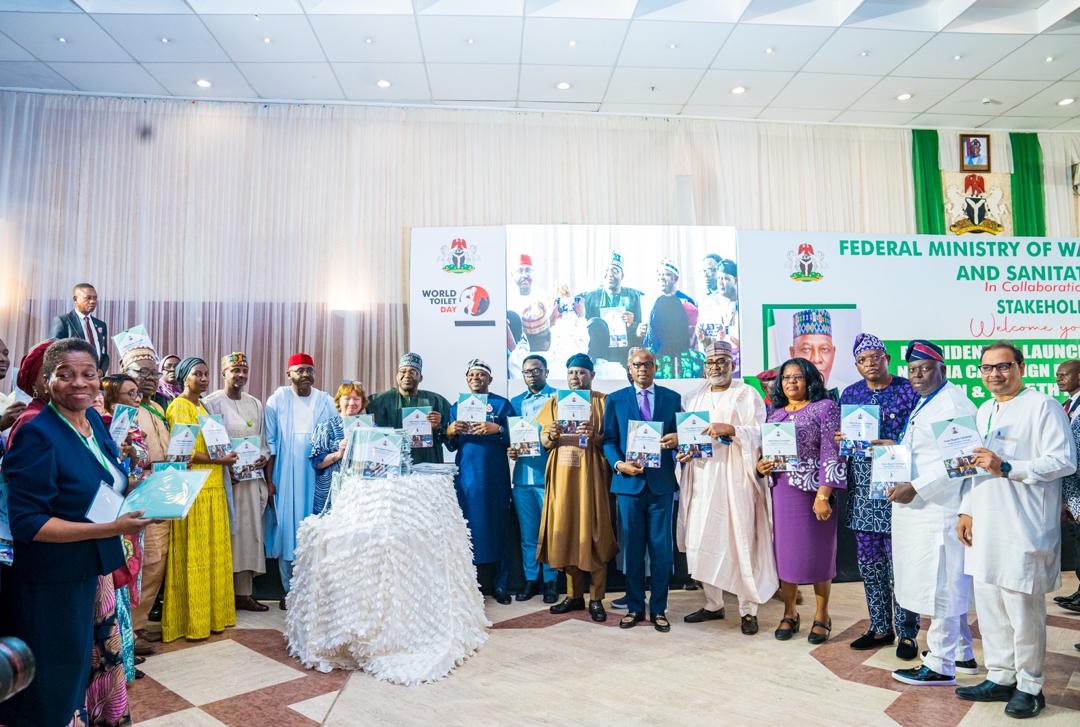2025 World Water Day: Nigeria Not Immune to Glacier Melt’s Cascading Effects – Water Minister Warns
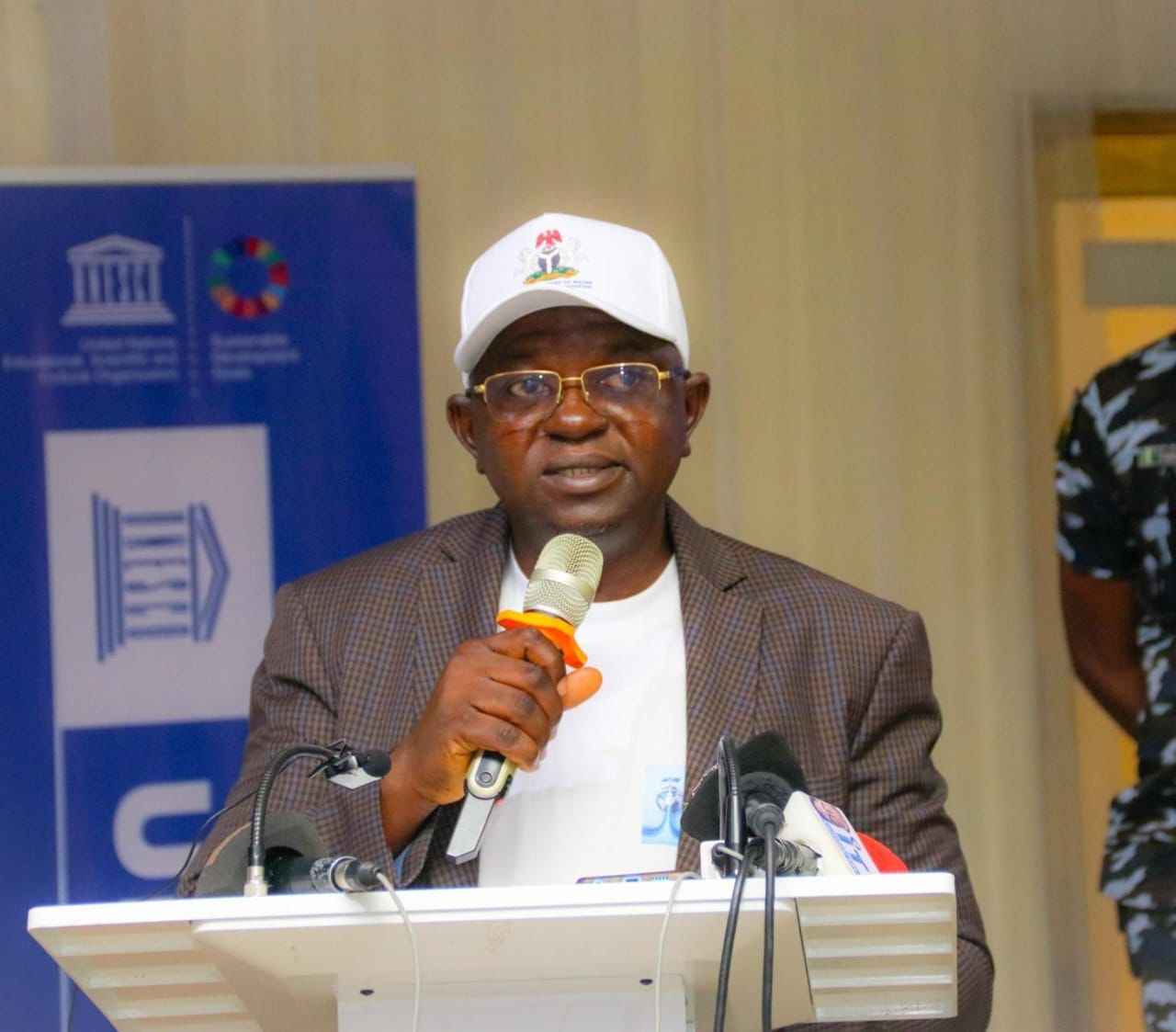
We are all connected by water. Only through collective action—locally, nationally, and globally—can we secure a future where water remains clean, safe, and sufficient for all – Prof. Utsev
… Launches Two Key Documents: Climate-Resilient Water Safety Plan Guidelines and Revised Technical Designs for WASH Facilities
By Fatima Saka
As the world Commemorates World Water Day 2025, Nigeria’s Minister of Water Resources and Sanitation, Engr. Prof. Joseph Terlumun Utsev, FNSE, has raised concerns about the global impact of glacier melt, emphasizing that Nigeria is not immune to its cascading effects.
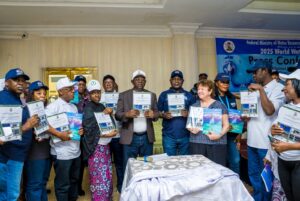
Speaking at a press briefing in Abuja on Saturday, the Minister warned that while Nigeria does not have glaciers, their rapid melting contributes to extreme weather events worldwide, affecting even regions far removed from these ice formations.
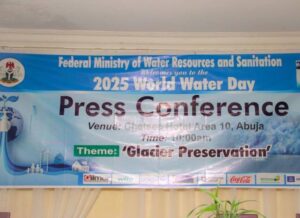
“Glaciers may seem distant from Nigeria’s immediate water challenges, but their preservation is crucial to the global climate system,” Prof. Utsev stated.
Glaciers and Their Role in the Environment
Highlighting the theme of this year’s World Water Day—”Glacier Preservation”, the Minister explained the significance of glaciers in regulating the Earth’s water cycle.
“For millions of years, glaciers nature’s crystal giants, have shaped landscapes, carved valleys, and sustained ecosystems,” he said.
Educating the public on their importance, he noted:
Glaciers store and release freshwater, supporting both human populations and wildlife.
Their melting influences sea levels and fuels hydropower generation in some regions.
They enrich lakes, rivers, and oceans with essential nutrients, sustaining aquatic life.
He added that scientists at the World Meteorological Organization (WMO) warn that glaciers are “the canary in the coal mine” for climate change.
“Their melting is among the most dramatic indicators of rising global temperatures,” the Minister stressed, citing UN Environment Programme (UNEP) reports that glaciers supply nearly 70% of the world’s freshwater—a resource now at risk.
How Glacier Melt Impacts Nigeria
Despite Nigeria’s geographical distance from glaciers, the Minister identified four key ways in which their melting affects the country:
Disruptions in Weather Patterns, Erratic rainfall leads to flooding in some areas and droughts in others.
NiMet’s 2025 Seasonal Climate Prediction warns of increasingly unpredictable rainfall, impacting over 70% of Nigeria’s agricultural sector.
Rising Temperatures and Desertification: Less freshwater inflow worsens desertification in northern Nigeria, making water scarcity more severe.
Threats to Agriculture and Food Security: Reduced irrigation water affects crop production, endangering farmers’ livelihoods.
World Bank reports indicate that Nigeria loses substantial agricultural revenue due to climate-related water shortages.
Coastal Erosion and Rising Sea Levels: Melting glaciers contribute to coastal flooding in Lagos, Bayelsa, and Rivers States, threatening communities and infrastructure, the minister stressed.
Nigeria’s Efforts to Tackle Water and Climate Challenges
Also, Minister outlined several key initiatives aimed at achieving Sustainable Development Goal (SDG) 6—ensuring clean water and sanitation for all by 2030:
National Water and Sanitation Programs
PEWASH (Partnership for Expanded Water Supply, Sanitation, and Hygiene): Enhancing water access in rural communities.
National Action Plan for WASH: Aiming for Open Defecation-Free (ODF) status by 2025.
SURWASH Program (in collaboration with the World Bank):
Providing safe drinking water to 6 million people.
Offering improved sanitation to 1.4 million individuals.
Upgrading WASH facilities in 2,000 schools and healthcare centers.
Supporting 500 communities in achieving ODF status.
Infrastructure and Technological Interventions
Rehabilitation of water supply systems and solar-powered boreholes.
Irrigation efficiency programs to improve agricultural water use.
Flood risk monitoring and hydrological mapping through the Nigeria Hydrological Services Agency.
Water Governance and Policy Reforms
Strengthening river basin management to ensure water sustainability.
Maintenance of dams and reservoirs for water storage, hydropower, and flood control.
Nigeria Integrated Water Resources Management Commission overseeing national water resource policies.
“We recognize that achieving sustainable water security requires strong partnerships at all levels—government, the private sector, development organizations, and local communities. Therefore, we urge all stakeholders to intensify their efforts in supporting initiatives that strengthen Nigeria’s water security and foster peace and development,” said the Minister of Water Resources.
Moving forward, Prof Utsev highlighted key stakeholders for deliberate actions, including:
1. The Federal Government will reinforce climate adaptation policies, enhance flood control systems, and invest in sustainable water infrastructure.
2. State Governments should implement localized water conservation programs, promote afforestation, and enforce environmental regulations.
3. The Private Sector must invest in eco-friendly technologies, support sustainable water management projects, and contribute to corporate social responsibility efforts for clean water access.
4. Research Institutions and NGOs should raise awareness of environmental challenges such as glacier loss, conduct studies on climate resilience, and advocate for community-based adaptation strategies.
5. Communities and Individuals must adopt water-saving practices, participate in tree-planting initiatives, and push for stronger environmental policies.
“By working together, we can ensure a water-secure future for Nigeria while promoting environmental sustainability and national development,” he added.
Calls for Collective Action
Mr. Richard Pheelangwah, Permanent Secretary of the Ministry, emphasized the urgent need for water conservation and sustainable management.
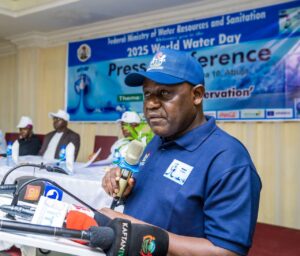
He called on the media and stakeholders to raise awareness and influence policy for better water governance.
UNESCO and UNICEF on Glacier Preservation
Presenting the World Water Development Report, Dr. Enang Momoh (representing UNESCO Director-General Audrey Azoulay) underscored the organization’s decades-long commitment to glacier monitoring and climate research.
“Glaciers hold Earth’s climate history within them. Protecting them is not just about the past—it is about securing our future,” he said.
Dr. Jane Bevan, UNICEF Chief of WASH, reaffirmed UNICEF’s commitment to strengthening Nigeria’s climate resilience through technical support, climate-adaptive WASH facility designs, and community-based water safety planning.

Also, World Bank Reaffirms Support, Engr. Chinedu Umolu, World Bank Senior Water Specialist, commended the Nigerian government’s commitment to sustainable water management, pledging continued World Bank support.

Launch of Two Key Documents
A major highlight of the event was the launch of two critical policy documents by the Minister of Water Resources and Sanitation:
1. Climate-Resilient Water Safety Plan Guidelines
2. Revised Technical Designs for WASH Facilities
READ ALSO: 2025 World Water Day: Nigeria Not Immune to Glacier Melt’s Cascading Effects – Water Minister Warns
NSRMEA, DICON: Backbone of Nigeria’s Economic Growth – Steel Minister
These documents will guide Nigeria’s water sector in adapting to climate change and ensuring sustainable access to safe water.
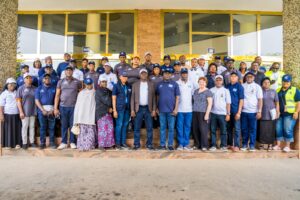
As Nigeria joins the world in commemorating World Water Day 2025, the call for urgent action echoes louder than ever. The preservation of glaciers may seem like a distant concern, but their melting poses a direct threat to water security, agriculture, and climate stability in Nigeria and beyond

